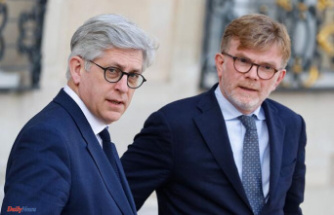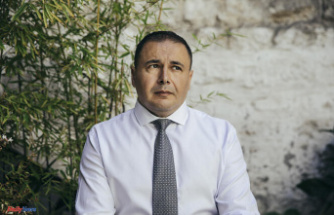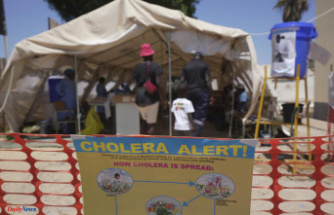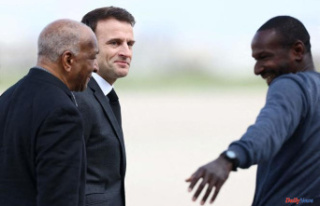“It is at the end of the war that the dead are counted. With these words, the trainer who welcomes the young recruits simply wants to warn them: only the best ranked at the end of the eight months of training will be able to choose their first assignment; the last will "take what remains."
Not very encouraging, on the edge of a teaching that already promises to be dense and physical. Especially in our schizophrenic society which, on the one hand, likes to hate its police officers and, on the other hand, demands an increased police presence... Hence a certain sympathy, a priori, towards the some twenty-five girls and boys whom the 'we discover on the screen the day they join the 262nd class of the National Police School of Montbéliard (Doubs), one of the forty-eight ENPs in France.
Questions too. Are they unconscious or passionate? To answer, director Clélia Schaeffer filmed them for a year: her miniseries reveals their desires, their aspirations, their sometimes fears. Better still, over the course of four episodes, these future peacekeepers will show surprising maturity and reveal, implicitly, the strengths and flaws of a system that should be exemplary.
The assets are the human warmth and the benevolence of the instructors. "What I love about the police is that I discovered a family," says Madison, future major of Montbéliard. Even if she is lucid about her future: “We are not loved. I know I will never be recognized. It's a job where you don't expect anything in return. »
Outside, the students discover with a hesitant step the cadenced march, the exhausting sequences of cardio and the handling of weapons. "It's scary if you think you're going to have to use it," comments Vincent, who studied law for two years before entering the school.
Follow in the footsteps of an intern
While episode one is about first times, episode two, which begins at three months of training, is about worries. "We have such a short education that we don't have time to see all the crimes," says one. And for Laura, "it's a lot." Not to say too much. Also Madison regrets that the school keeps all the students, including the less motivated, but she understands: "We want the quantitative, not the qualitative. It's political. »
After a thrilling third episode, focusing on exams and assigning assignments, the latest installment follows Madison's first steps as a police trainee in Strasbourg, "her" city, where she discovers a reality far removed from theory. "We're clearly not ready. The school was a cocoon. (…) The police station is really scary. »
She has to "learn everything" again, such as dealing with a bleeding man on the ground, or writing an intervention report. "Bitch, female dog, whore... Do I have to put in all the insults?" she asks. "You put some on," her colleague explains. Either way, it's always the same. But in French law, what is not written does not exist. »
Well supervised, again with benevolence, Madison is progressing quickly. She even excels in listening to victims. "People want to be listened to," she said during a car debrief before being called in for... a theft of oranges. "Who stole, stole..." Madison hums. The peacekeeper has found her calling.












